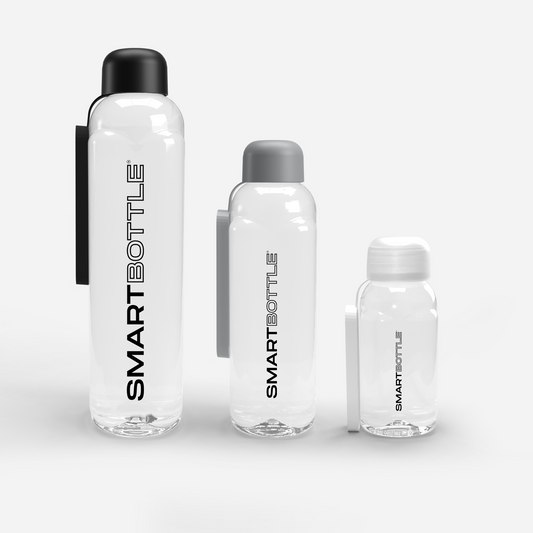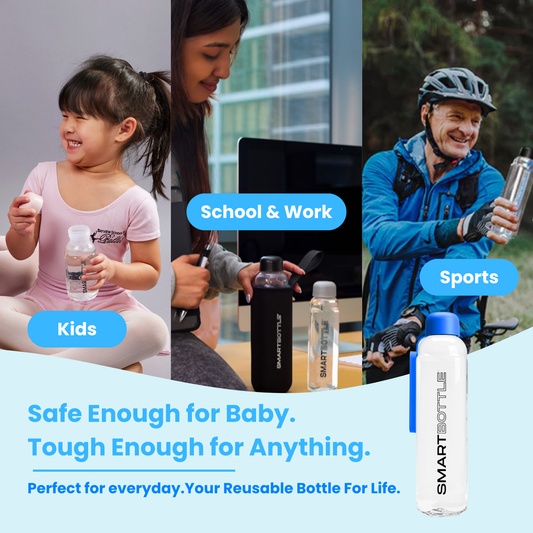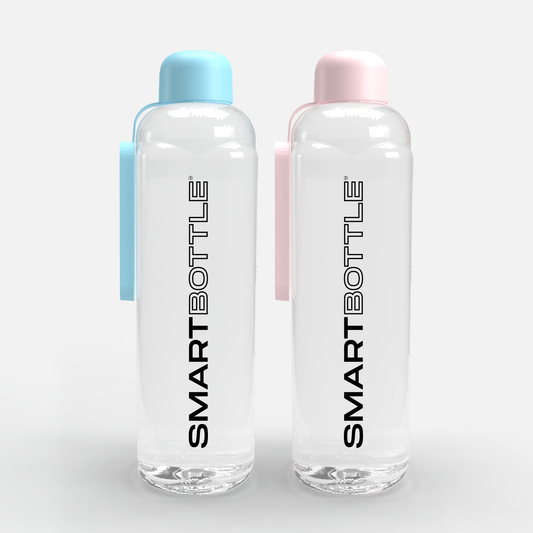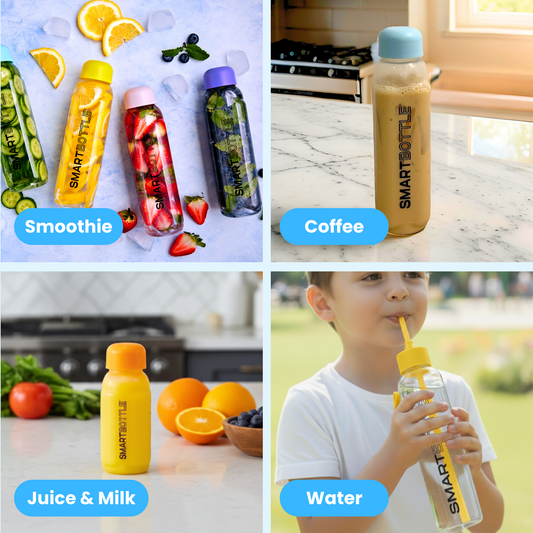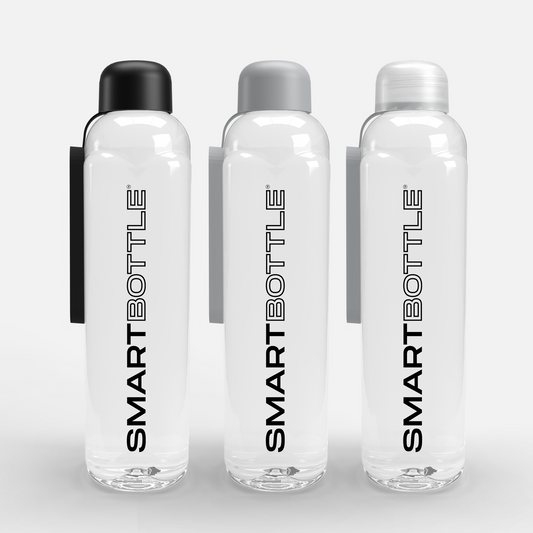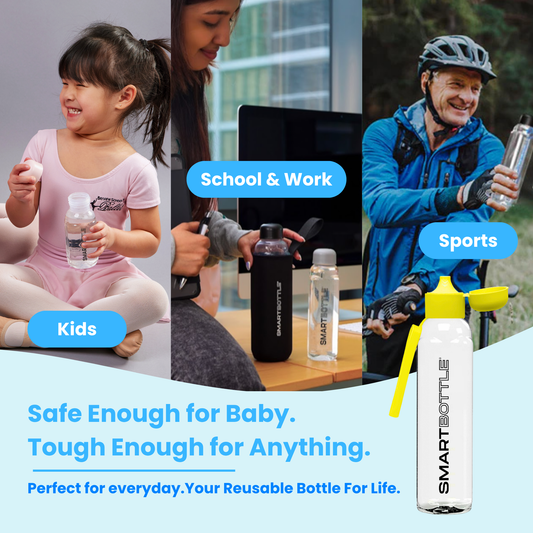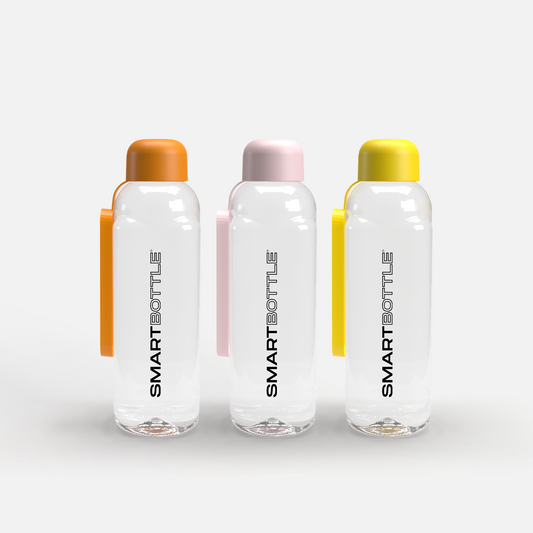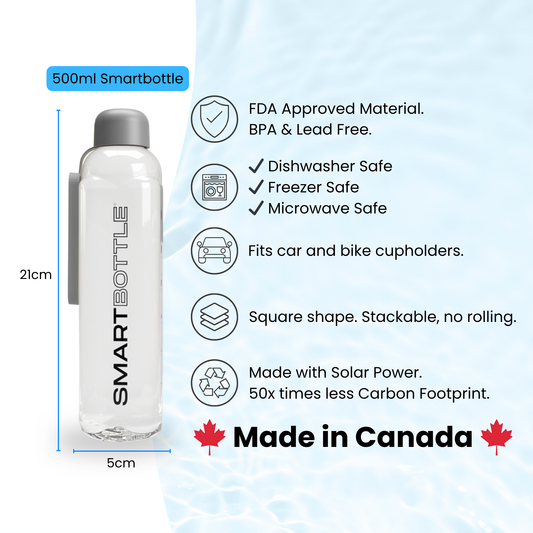
The Truth About Metal Bottles: Vital Health Facts Your Water Bottle Brand Won't Tell You
Share
Last Updated: January 9, 2025
In recent years, reusable water bottles have become a staple in the lives of environmentally conscious individuals. Among the popular options are aluminum bottles and stainless-steel bottles, both of which are marketed as sustainable and durable alternatives.
The recent recall of bottles due to dangerous lead contamination has sent shockwaves through the health-conscious community. With toxic levels of lead found in popular steel water bottles, many families are asking: "Is my water bottle poisoning my family?"
The Lead Water Bottle Crisis: What You Need to Know
Lead contamination in water bottles isn't just a minor inconvenience – it's a serious public health threat. When lead leaches into your drinking water, it can cause:
- Neurological damage in children and adults
- Kidney problems and organ dysfunction
- Developmental delays in children
- Cardiovascular issues over time
- Reproductive health problems
The most alarming fact? Lead exposure has no safe level, especially for children under 6 years old.
Why Are Metal Water Bottles Contaminated with Lead?
Most metal water bottles are manufactured in countries with less stringent quality control standards than North America. During the manufacturing process, lead can be introduced through:
- Soldering processes used to join metal components
- Low-quality materials sourced from unreliable suppliers
- Inadequate quality testing before products reach consumers
- Coating processes that may contain lead-based materials
Aluminum Water Bottles
Advantages of Aluminum Water Bottles
- Lightweight and Portable: Aluminum bottles are lightweight, making them easy to carry for outdoor adventures, gym sessions, or daily commutes.
- Durability: Aluminum is resistant to dents and corrosion, providing a long-lasting option for hydration.
Potential Risks of Aluminum Water Bottles
- Leaching of Aluminum Ions
When exposed to acidic or hot liquids, aluminum bottles may leach small amounts of aluminum into the beverage. While the human body can tolerate trace amounts of aluminum, excessive exposure has been linked to health issues such as Alzheimer’s disease and kidney problems.
Most aluminum bottles are lined with a protective coating to prevent direct contact between the liquid and the aluminum. However, if the coating is damaged or degraded over time, the risk of aluminum leaching increases.
2. Not Suitable for All Beverages
Aluminum water bottles are not recommended for acidic drinks like citrus juices or carbonated beverages, as these can accelerate the leaching process.
Stainless Steel Bottles:
Advantages of Stainless Steel Bottles
- Durability: Stainless steel is highly resistant to dents, scratches, and corrosion, ensuring a long lifespan for your bottle.
- Non-Reactive Material: Unlike aluminum, stainless steel does not react with acidic or hot liquids, ensuring the safety of your beverages.
- BPA-Free: Stainless steel water bottles are free from harmful chemicals like BPA, making them a safer choice for your health.
Potential Risks of Stainless Steel Bottles
- Nickel and Chromium Exposure
Stainless steel contains trace amounts of nickel and chromium, which can leach into beverages under certain conditions.
2.Weight
Stainless steel bottles are heavier than aluminum, which may be a drawback for some users. Especially for kids, the weight could cause a burden and lead to back problems
How to Protect Your Family from Lead Water Bottle Exposure
Immediate Action Steps:
- Check your current bottles for any recall notices or brand warnings
- Replace metal bottles that show signs of wear, scratches, or coating damage
- Research manufacturer origins – prioritize North American-made products
- Look for certifications like FDA approval and BPA-free guarantees
Long-Term Safety Strategies:
- Choose medical-grade materials over traditional plastics or metals
- Prioritize transparent manufacturing with clear quality control standards
- Stay informed about product recalls and safety updates
Why Smartbottle is the Safe Alternative
Medical-Grade Materials You Can Trust
Smartbottle is crafted from FDA-approved medical-grade polypropylene – the same material used in medical devices and infant feeding products. This means:
- Zero lead content in materials or manufacturing process
- BPA-free formulation for hormonal health protection
- Non-reactive surface that won't leach harmful substances
- Safe for all beverages including acidic and hot liquids
Premium Quality Control Standards
Unlike most metal containers produced overseas, Smartbottle adheres to rigorous North American quality control guidelines:
- Strict material sourcing from certified suppliers
- Comprehensive testing at every manufacturing stage
- Canadian manufacturing standards ensure consistent quality
Health Benefits of Choosing Smartbottle
For Your Family's Health:
- Lightweight design prevents back strain, especially important for children
- Chemical-free hydration without concerns about metal leaching
- Suitable for all ages from toddlers to seniors
- No allergic reactions from nickel or chromium exposure
For Daily Use:
- Versatile beverage compatibility – safe for water, juices, and hot beverages
- Easy to clean without special equipment or harsh chemicals
- Durable construction built to last without coating degradation
- Affordable replacement compared to premium metal bottles
Tips for Safe Use of Reusable Bottles
To minimize potential risks and maximize the benefits of reusable bottles, follow these tips:
- Choose High-Quality Bottles: Invest in water bottles from reputable brands that use food-grade materials. Look for certifications that ensure safety and quality. Like Smartbottle, as it’s made from FDA-approved medical-grade materials that are both lead and BPA-free.
- Avoid Damaged Bottles: Discard metal water bottles with visible damage, such as scratches or peeling coatings, as these can compromise safety.
- Clean Regularly: Wash your bottle thoroughly after each use to prevent bacterial growth and residue buildup. Sanitize with boiling water biweekly.
- Avoid Extreme Temperatures: Do not expose your water bottle to extreme heat or cold, as this can affect the material’s integrity and performance.
- Use for Appropriate Beverages: Avoid using aluminum water bottles for acidic or carbonated drinks, and be cautious with stainless steel water bottles if you have a nickel allergy.
Don't wait for another recall to threaten your family's health. Smartbottle provides the safe, reliable hydration solution that health-conscious Canadian families deserve.
Ready to Protect Your Family?
Visit Smartbottle.ca today to learn more about our medical-grade, lead-free water bottles. Made in Canada with your family's health as our top priority.
Stay hydrated, stay safe, and make smart choices for your health with SmartBottle.
Smartbottle is proudly made in Canada using FDA-approved medical-grade polypropylene. Our commitment to health and safety means zero lead, zero BPA, and zero compromise on quality.

